Understanding Transport Risk Assessment
A transport risk assessment is a systematic process designed to identify, evaluate, and mitigate risks associated with transportation operations. It is crucial for logistics companies, transport managers, and fleet operators aiming to ensure safety, comply with regulations, and optimise operational efficiency.
Benefits of Transport Risk Assessment
Conducting a transport risk assessment offers numerous advantages. It helps in identifying potential hazards, ensuring compliance with safety regulations, and reducing the likelihood of costly accidents. Additionally, a well-executed risk assessment can improve operational efficiency by streamlining processes and allocating resources effectively.
Risks Addressed by Transport Risk Assessment
Transport risk assessments address various risks including road safety, vehicle maintenance, driver performance, and environmental impacts. By evaluating these risks, organisations can implement strategies to mitigate them, thus enhancing overall safety.
Legal and Regulatory Context
In the UK, transport risk assessments are not only best practice but also a legal requirement under the Health and Safety at Work Act 1974. Compliance ensures that organisations meet their duty of care towards employees and the public. For detailed legal guidelines, refer to the GOV.UK health and safety regulations.
Costs Associated with Transport Risk Assessment
The costs involved in a transport risk assessment vary depending on the scale and complexity of operations. While there may be initial expenses related to hiring experts or implementing new processes, the long-term savings from reduced accidents and improved efficiency often outweigh these costs.
How to Implement Transport Risk Assessment
Step-by-Step Guide
- Identify Hazards: List all potential risks in your transport operations.
- Evaluate Risks: Assess the likelihood and impact of each hazard.
- Implement Controls: Develop strategies to mitigate identified risks.
- Monitor and Review: Regularly review your risk assessment to ensure it remains relevant.
For professional assistance, consider engaging a freelance transport manager to guide your risk assessment process.
Common Mistakes in Transport Risk Assessment
- Failing to update risk assessments regularly.
- Overlooking minor risks that could escalate.
- Not involving key stakeholders in the assessment process.
- Underestimating the importance of training and communication.
Pros and Cons of Transport Risk Assessment
| Pros | Cons |
|---|---|
| Enhanced safety and compliance | Initial time and cost investment |
| Improved operational efficiency | Requires ongoing commitment |
FAQs
What is a transport risk assessment?
A transport risk assessment is a process to identify and mitigate risks in transport operations.
Who needs to conduct a transport risk assessment?
It is essential for transport managers, logistics companies, and fleet operators.
What are the key steps in a transport risk assessment?
Identify hazards, evaluate risks, implement controls, and monitor regularly.
What might be the consequences of not conducting a transport risk assessment?
Non-compliance with legal requirements, increased accidents, and potential financial losses.
How often should a transport risk assessment be reviewed?
Regularly, especially when there are changes in operations or after incidents.
Key Takeaways
Transport risk assessments are fundamental for ensuring safety and compliance in transportation operations. They provide a framework for identifying risks and implementing controls. While there are costs involved, the benefits in terms of safety and efficiency are significant. Regular updates and professional guidance can enhance the effectiveness of the assessment process.
Plan Your Next Audit
Discuss priorities in a free 30-minute session. Contact us today.





